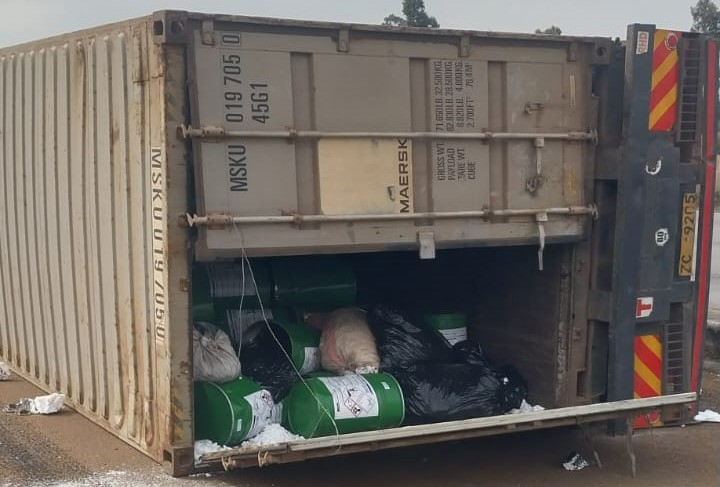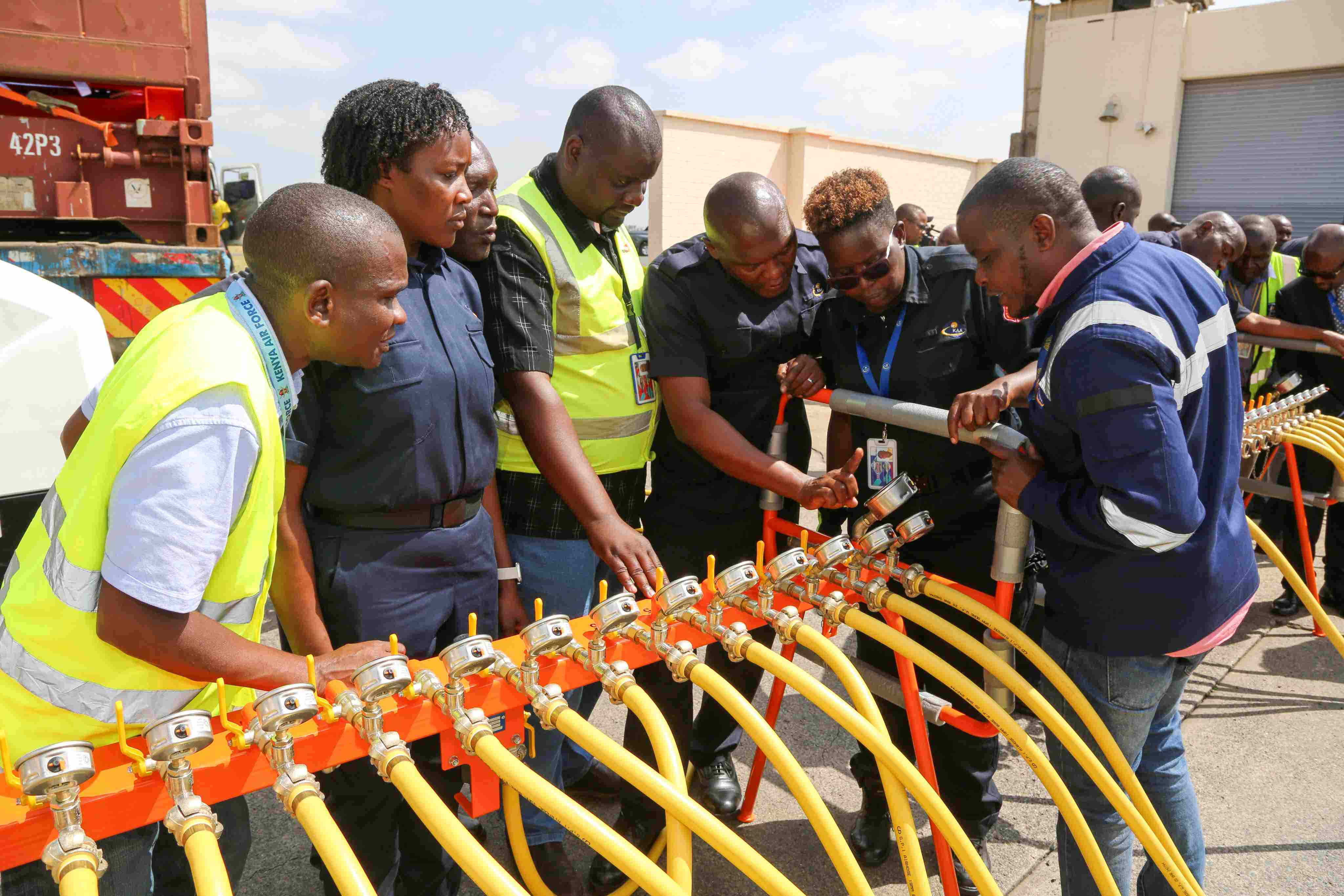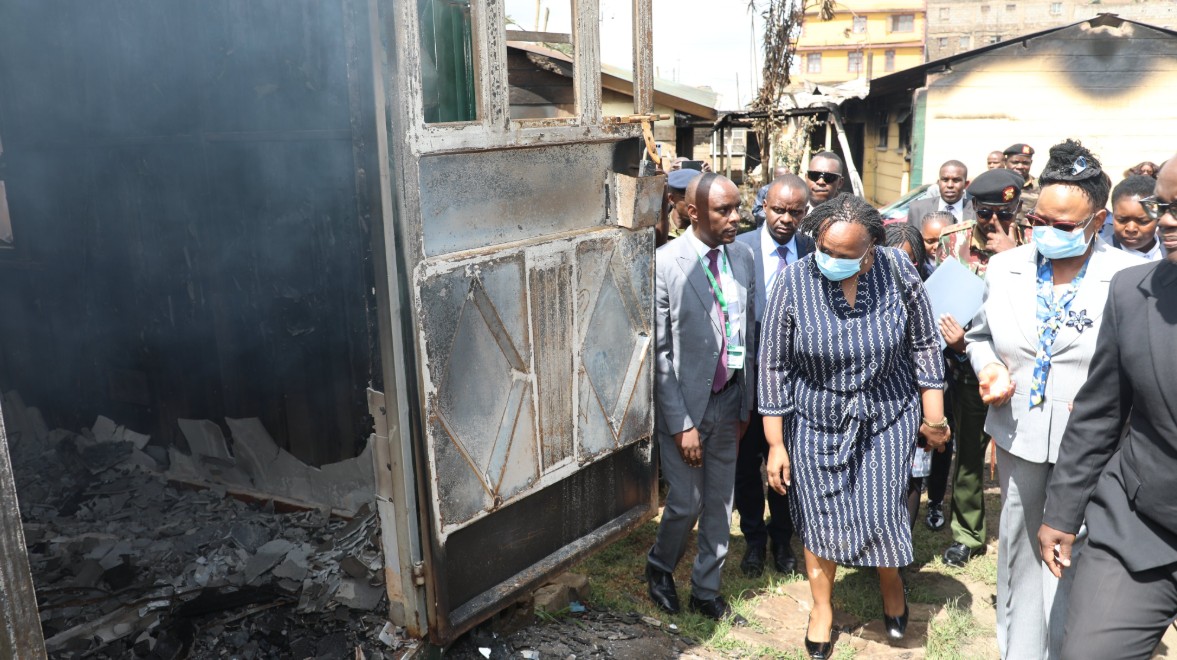Public exposed to toxic chemical spill in Kiambu urged to seek immediate medical help

NEMA raised an alarm after several containers of sodium cyanide were reported missing.
The Ministry of Health has urged anyone who may have come into contact with the sodium cyanide spill in Kambembe Area, Rironi, Kiambu County, to seek immediate medical attention.
The accident, which occurred on Saturday, resulted in a spill of the highly toxic chemical.
More To Read
- NEMA cracks down on improper waste transport under new regulations
- NEMA shuts down over 200 illegal gold mining sites along River Turkwel in Turkana
- Government raises alarm over persistent use of banned plastic bags in Garissa
- Plastic bag ban widely ignored as Kenyan traders cite cost, convenience challenges
- Thange oil spill victims still suffering 10 years on as Senators demand action
- Court bars DCI, DPP from prosecuting NEMA staff over Embakasi gas blast
On Sunday, the National Environment Management Authority (NEMA) raised an alarm after several containers of sodium cyanide were reported missing.
The Authority urged the public to report any sightings of the containers to the nearest police station or Chief’s office and to avoid contact due to their extreme toxicity.
Health Principal Secretary Mary Muthoni announced on Monday that the spill site has been cleared and is now safe for normal use. However, she emphasised the need for anyone who may have come into contact with the chemical to seek medical attention.
“A temporary station, manned by the Kiambu County Health Department, has been established near the incident site to review, advise, and support those who may have difficulty accessing health facilities. Individuals in possession of the missing chemicals are requested to surrender them to the personnel at the temporary station or call the emergency numbers provided for information on how to return them to the authorities,” Muthoni said.
She added that while no cases of poisoning have been reported so far, the Ministry has engaged with the local community to ensure no chemicals are left behind.
 Public Health and Professional Standards Principal Secretary Mary Muthoni. (Photo: Health Ministry)
Public Health and Professional Standards Principal Secretary Mary Muthoni. (Photo: Health Ministry)
“The Ministry has initiated risk communication and community engagement through churches, primary care networks, community health promoters, National Government Administration Officers, and the Nyumba Kumi initiative. These efforts aim to track, monitor, and secure any chemicals that may have wrongfully ended up in the community,” she said.
Protective clothing
Muthoni also cautioned the public not to touch damaged containers or spilt material without protective clothing.
To minimise exposure, she advised that small spills should be covered with dry earth, sand, or other non-combustible materials.
“Proper Personal Protective Equipment (PPE), such as gloves, masks, and eye protection, is essential when handling sodium cyanide to prevent direct exposure. Adequate ventilation and spill containment systems are crucial in environments where sodium cyanide is handled. Thorough training on its hazards and emergency response procedures is mandatory for anyone handling sodium cyanide. Immediate access to antidotes is vital in case of poisoning,” she said.
Sodium Cyanide is a white powder (like salt) with a faint almond-like odour, used as a solid or in solution to extract metal ores, in electroplating and metal cleaning baths, metal hardening and in insecticides.
Contact with the chemical can irritate the skin and eyes, while inhalation can irritate the nose, throat, and lungs, causing coughing, wheezing, and shortness of breath. High exposure can lead to headaches, dizziness, rapid heartbeat, unconsciousness, and even death.
Long-term effects of sodium cyanide exposure can last for months or years, potentially causing thyroid gland enlargement, nervous system damage, and changes in blood cell counts. Repeated lower exposures can result in nose discharge, nosebleeds, and sores.
The Ministry of Health has warned that in case of contact, affected individuals should immediately flush their skin or eyes with running water for at least 30 minutes.
Individuals should also contact the Public Health Emergency Operation Center at 0729471414 or 080072136 (toll-free), and the National Disaster Operation Centre at 0800721571 for assistance.
Top Stories Today
Reader Comments
Trending














































